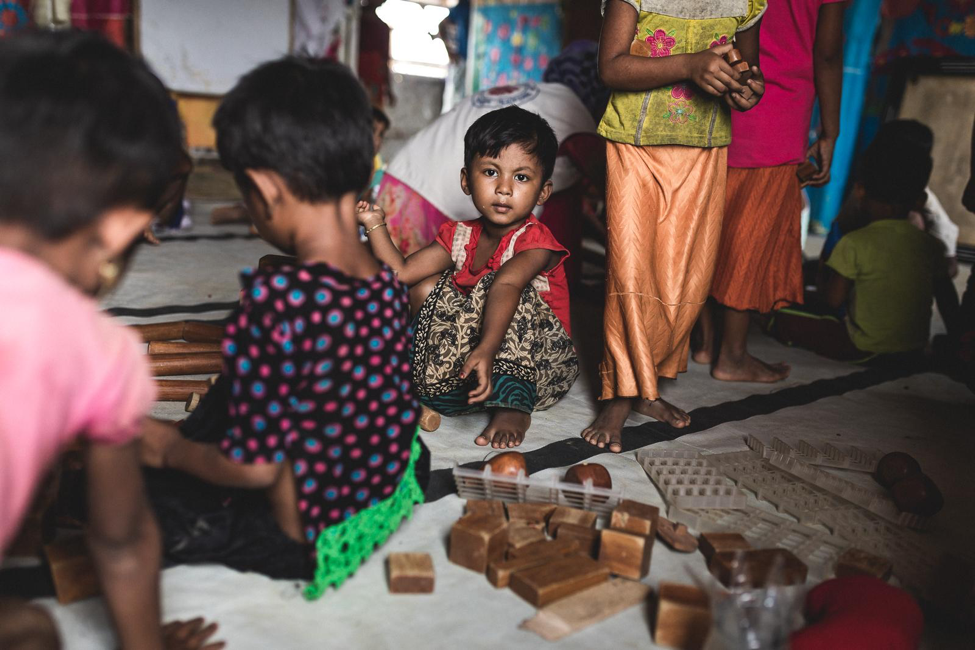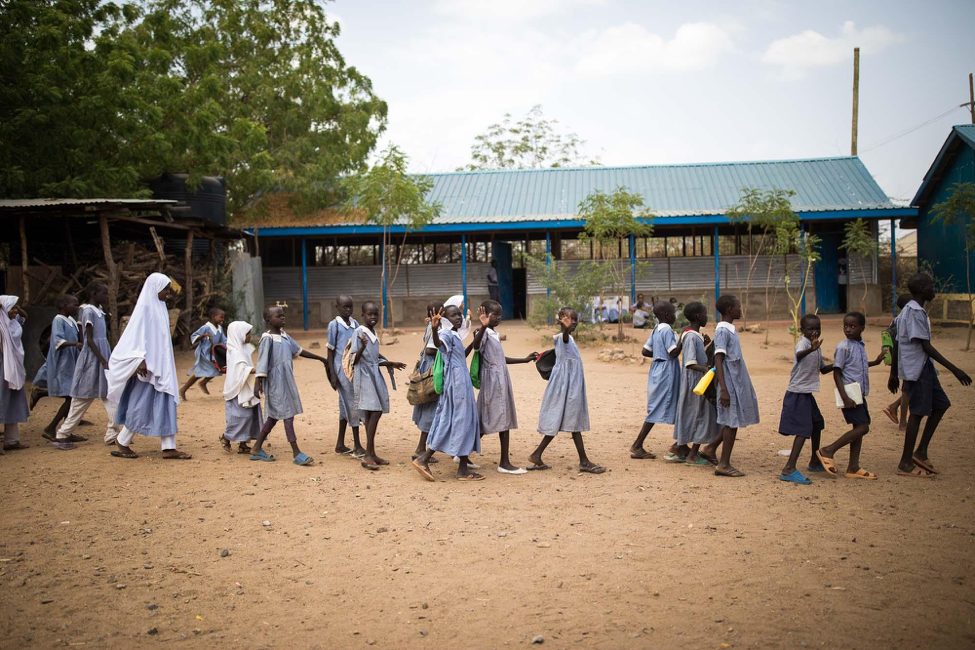Scaling Innovations in EiE - learnings from the Humanitarian Education Accelerator (HEA)
The Humanitarian Education Accelerator (HEA) - a DFID funded partnership between UNHCR and UNICEF - has been working to better understand the process of scaling in protracted crisis settings. Since 2016, the HEA has aimed to support five humanitarian education innovations that are in the process of bringing their innovations to scale. Read about HEA's learning from this process below.

Protracted crises demand education interventions that can innovate, adapt and scale to meet the enormous challenge of ensuring all children and youth realise their right to education. However, more is known about the barriers to scale in humanitarian settings (such as unstable funding, etc.) than about its enablers. Coupled with a lack of evidence around what works and what does not work in the humanitarian education space, it is challenging for donors, policymakers and practitioners to identify which interventions to scale, and how.
The Humanitarian Education Accelerator (HEA) - a DFID funded partnership between UNHCR and UNICEF - has been working to better understand the process of scaling in protracted crisis settings. Since 2016, the HEA has aimed to support five humanitarian education innovations (more information on the innovations here) that are in the process of bringing their innovations to scale through:
-
Providing rigorous evidence of selected education interventions’ effectiveness and potential scale;
-
Bringing together findings from HEA research and existing evidence, to create a meta-evaluation that examines and summarises barriers and facilitators to scale for education programmes in humanitarian crisis settings;
-
Building a model that pairs up implementers with technical experts for targeted support, including a scaling mentor to guide them through the wider scaling process;
-
Improving monitoring and evaluation capacity of the five implementing organizations; and
-
Enhancing partnerships and building cohorts of innovators working through similar challenges and successes, in order to share lessons learned on scaling up in emergency settings.
During the process of providing this support, the HEA team (including HEA scaling expert, Ian Gray of Gray Dot Catalyst and External Evaluation Firm, American Institutes for Research) has had the opportunity to observe, evaluate and bring together learnings on scaling EiE. These include identifying the effect of short term humanitarian funding on EiE innovations’ journey to scale, as well as understanding the different components of sustainable scale - from the importance of government engagement to business models, intellectual property and partnerships.

Government Engagement
The HEA has observed a crucial role for Ministries of Education (MoEs) in scaling EiE innovations. Offering the potential of a sustainable framework for expansion through a national system, the MoEs role in scaling EiE goes beyond their regulatory function, positioning them as key partners and facilitators of sustainable scale. Relationship building, stakeholder mapping and long-term engagement with MoEs are thus key components of the scaling journey. This work is not without its challenges, taking significant time and financial investment, and should therefore be factored into EiE innovations’ implementation planning.
Partnerships
The HEA has also recognised that effective partnerships - whether with other humanitarian actors, development actors, the private sector or government - are another key component for sustainably scaling humanitarian education innovations. All five of the HEA grantees were involved in some form of partnership during the development and/or scaling of their innovation. However, the HEA found that understanding how to assess, build, maintain and review partnerships at different points in the scaling journey is often limited. These are additional steps that should also be factored into planning. Building understanding of partnership methodologies and partnership management, as well as developing process and outcome metrics for partnerships, would additionally benefit from further focus and funding when bringing innovations (in EiE or otherwise) to scale.

Planning for scale
Any innovation needs a plan and documented process to follow, in order to sustainably scale and achieve the most impact. These plans are traditionally called business models. When applied to the humanitarian education sector, a sustainable and scalable business model does not have to mean a model for generating profit, instead it is a model that guides how the innovation can be integrated into relevant systems and planning, and vitally, secure longer term funding. HEA scaling expert, Ian Gray, has highlighted the importance of identifying sustainable and scalable business models for EiE innovations, which take into account the regulatory and funding landscape that EiE innovations operate in (specifically around working with governments and with limited revenue). Without a clear understanding of their business model and its sustainability, EiE innovators will find themselves on a long and bumpy road to scale, without a map to guide them. Whilst terminology around business models does not necessarily feel a natural fit in the non-profit, humanitarian education sector, it is important to think through and understand this aspect for sustainable scaling and durable funding solutions (for more detail on how, see our longer article from Ian Gray on the HEA Learning Series).
Perpetual Pilot
The HEA has also observed the impact that short term, emergency driven humanitarian funding cycles can have upon EiE innovations reaching their full scaling potential. In the absence of access to longer term funding for the development of components that ensure sustainable and efficient scaling of an intervention, innovations are often incentivized to move into new contexts (driven by the availability of funding), before they have honed the sustainability of their intervention. This can lead them to operate in a ‘Perpetual Pilot’ mode, where a lack of available time and resources to build in key components for sustainability - such as an identified business model, adding in missing components and features, codifying the innovation and connecting with the ecosystem in a sustainable way - impacts their potential for sustainable scale. One way to avoid EiE innovations falling into perpetual pilot mode, is to make longer term, stage-gated funding envelopes available, which are aligned with the longer term nature of the scaling process.
We take a deeper dive into these and other learnings on scaling EiE innovations on our Medium publication, the HEA Learning Series here. The HEA Learning Series is a platform that aims to build the conversation on scaling EiE, through sharing learnings from our grantees and partners, in addition to evidence from HEA research. A series of policy briefs, scaling and M&E tools, and evaluation reports, which further outline the HEA’s findings and recommendations, are due to be released via INEE and the HEA Learning Series soon. Follow the HEA Learning Series on Medium and @HEAccelerator on Twitter to join the conversation and be the first to know when we publish new research and learnings. You can also contact the HEA team on [email protected] for more information.
Charlotte Jenner is the Communications Officer for the Humanitarian Education Accelerator (HEA), bringing together learnings from the programme, its partners and grantees on scaling humanitarian education innovations - through blogs, policy briefs, case studies, videos, tools and guidance.
The views expressed in this blog are the author's own.



